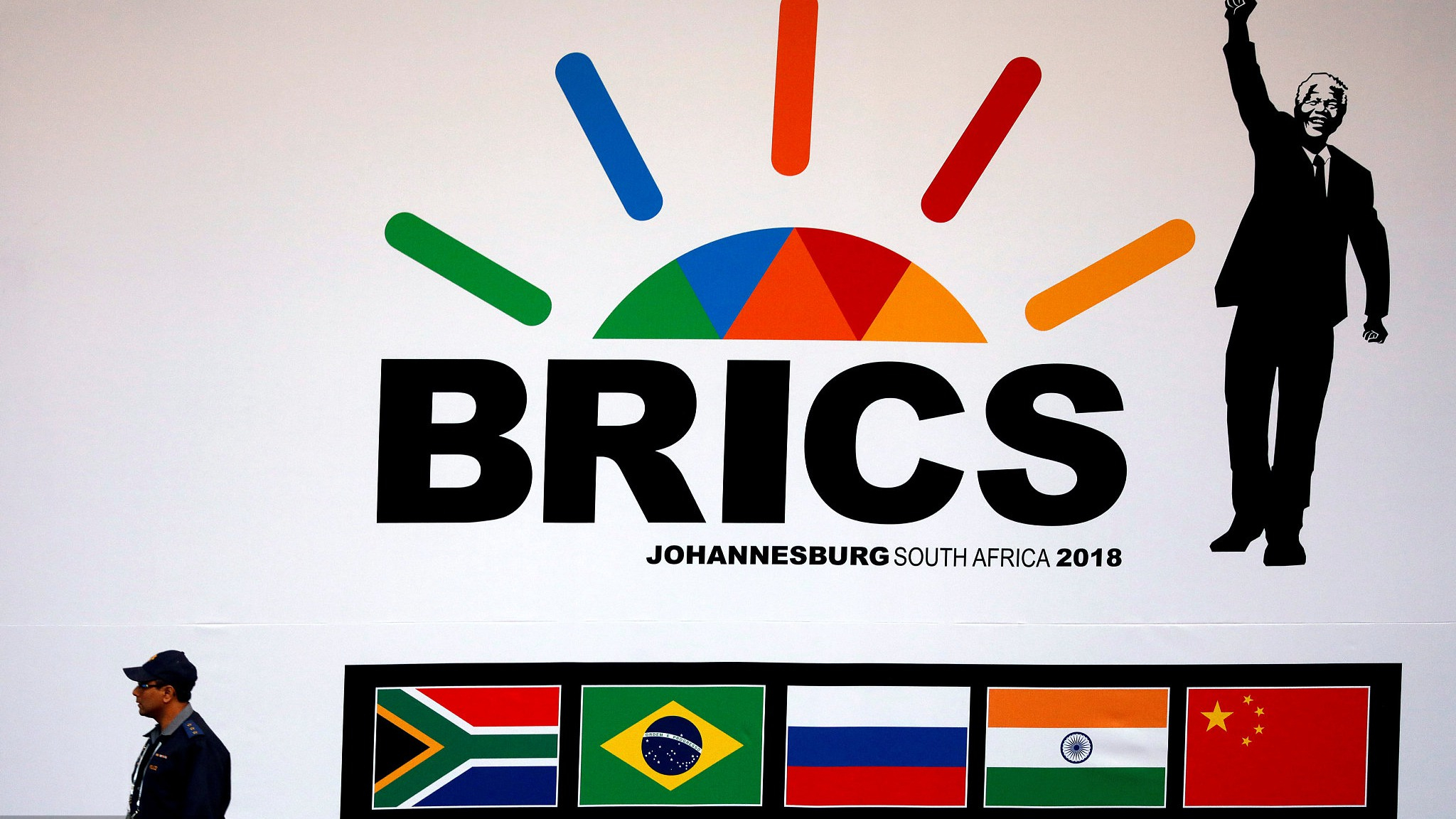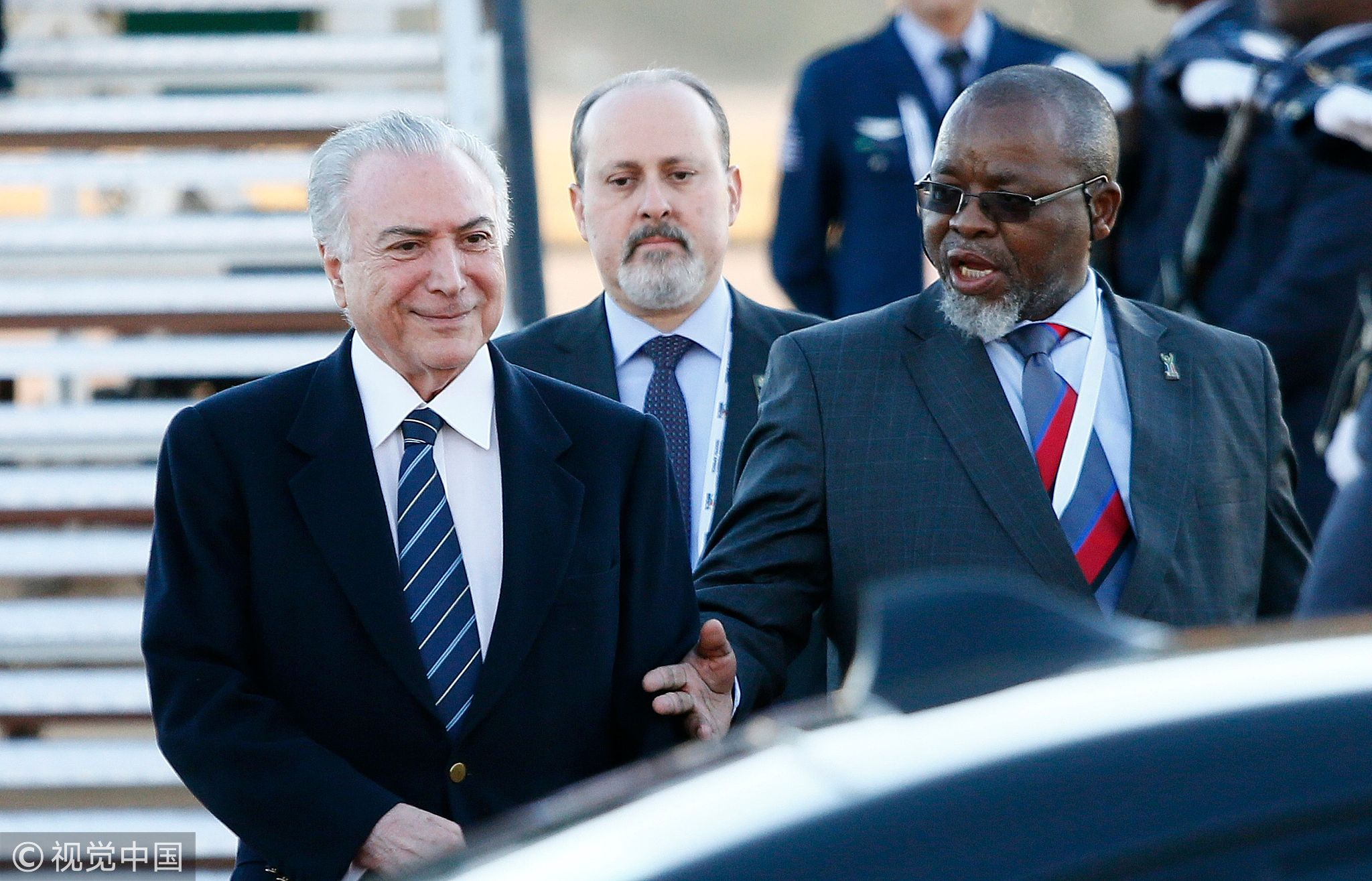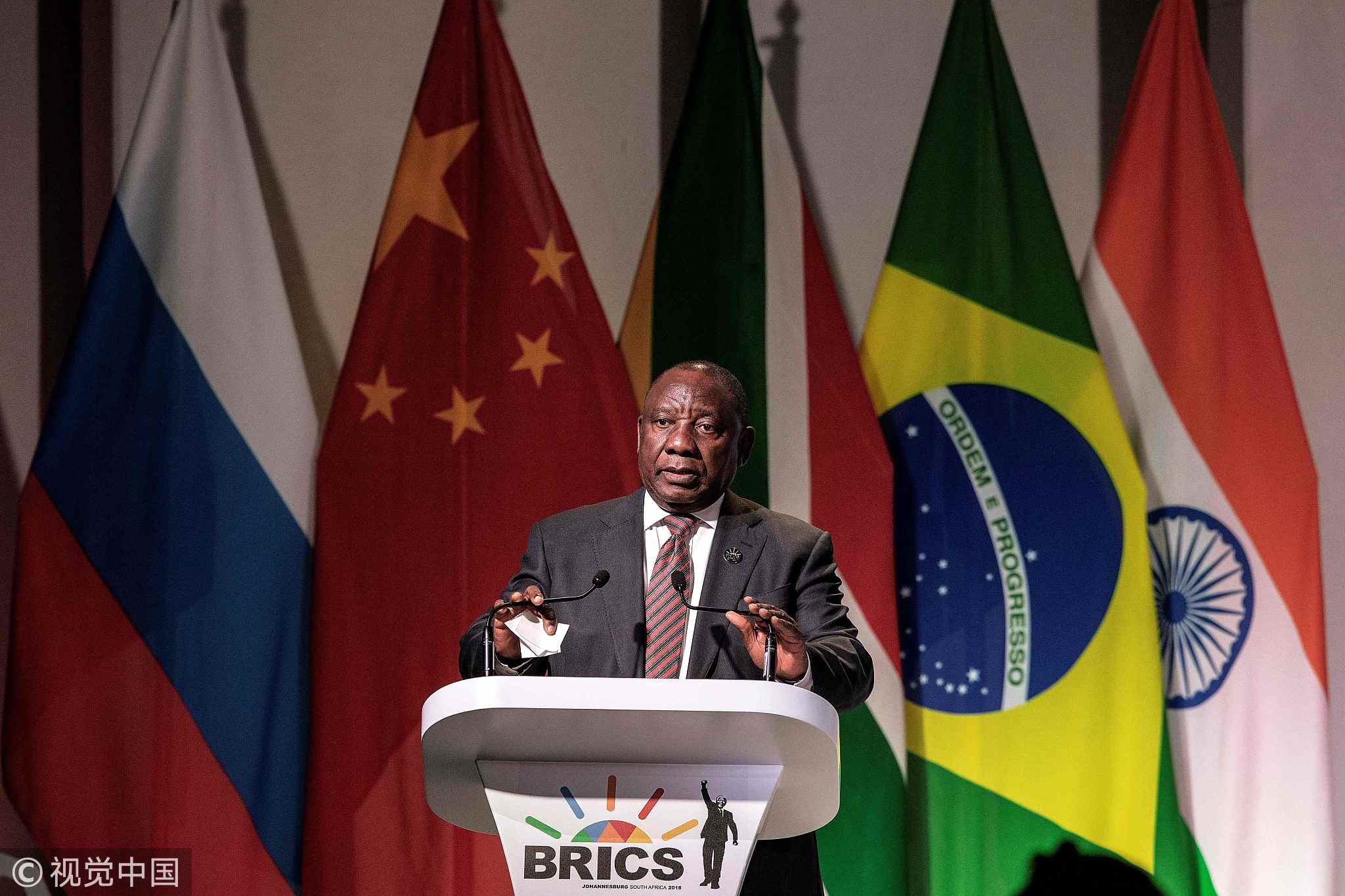
Opinions
10:20, 26-Jul-2018
Opinion: Building better BRICS: Improving South-South cooperation in global governance
Updated
10:06, 29-Jul-2018
He Rui

Editor’s note: He Rui is an assistant research fellow at the department of Developing Countries Studies under China Institute of International Studies (CIIS). The article reflects the author’s opinion, and not necessarily the views of CGTN.
South Africa, the rainbow nation, has long been perceived as a bridge between Africa and the world. China, the largest developing country, dedicates itself to contributing new momentum for globalization.
On the day when China’s President Xi Jinping paid the third state visit to South Africa and attended the 10th BRICS Summit in Johannesburg, the deepening of China-South Africa partnership has shown promising prospects of BRICS as a South-South cooperation platform in favor of future global governance.
South Africa converts the BRICs to BRICS
After 10 years of development, the BRICS Summit has successfully evolved into an inclusive forum of South-South cooperation.
At the 2009 Yekaterinburg Summit, BRIC countries were committed to advancing the reform of international financial institutions and required greater voices and representation of developing economies in international financial institutions.
In 2010, as a significant step towards these goals, South Africa officially joined in, converting the “S” of BRICs to upper case.
Thanks to South Africa’s participation, BRICS is growing faster towards a representative multilateral platform, allowing more developing countries, especially African countries to have opportunities to achieve development goals.
On August 17, 2017, the New Development Bank (NDB) officially opened the Africa Regional Center (ARC) in Johannesburg, aiming to enhance and complement the available funding sources in this continent.
Towards a diversified world
The BRICS is both an economic bloc of emerging markets and an innovative mechanism of global governance.
The BRICS countries share different histories as well as political, economic, and social systems, representing the trend of cultural diversity. It could promote crucial diversity which is often missing in existing global governance systems.

Brazil's President Michel Temer (L) arrives at the Waterkloof Air Force Base in Pretoria, South Africa to attend the 10th BRICS Summit, July 25, 2018./VCG Photo
Brazil's President Michel Temer (L) arrives at the Waterkloof Air Force Base in Pretoria, South Africa to attend the 10th BRICS Summit, July 25, 2018./VCG Photo
The diversity of BRICS is further guaranteed by “BRICS Plus.” In the Xiamen Declaration 2017, BRICS members agreed to “strive towards broad partnerships with emerging markets and developing countries (EMDCs), pursuing equal-footed and flexible practices and initiatives for dialogue and cooperation with non-BRICS countries through BRICS Plus cooperation.”
On the 10th anniversary of the BRICS Summit, the Johannesburg Summit focuses on “BRICS in Africa: Collaboration for Inclusive Growth and Shared Prosperity in the 4th Industrial Revolution,” striving towards the creation of an inclusive society and global partnerships.
Under this theme, new areas of cooperation will be proposed, including peacekeeping, industrialization, gender equality, vaccine research and tourism. Such an expanded architecture could create more room for developing countries to have their own voice and seek their respective ways to prosperity.
Rebuilding inclusiveness for global governance
For a new era of China-South Africa friendship, the BRICS cooperation could enhance global governance as follows:

South Africa's President Cyril Ramaphosa addresses a Business Forum organized during the 10th BRICS summit at the Sandton Convention Centre in Johannesburg, South Africa, July 25, 2018./VCG Photo
South Africa's President Cyril Ramaphosa addresses a Business Forum organized during the 10th BRICS summit at the Sandton Convention Centre in Johannesburg, South Africa, July 25, 2018./VCG Photo
Pushing forward economic globalization. The developing world relies on participating in the global economy to achieve economic growth and public welfare, but current globalization encounters difficulties since protectionism and populism are on the rise in the developed world.
The BRICS members need to work closely to maintain the openness of international economic order in favor of a stable development environment.
Exploring sustainable development in Africa. Along with African countries joining forces for political stability and economic resilience, building a sound and long-term international investment and financing regime becomes more important and urgent.
Sustainable infrastructure development is the primary emphasis of NDB’s operations in the next four years. Facing global liquidity pressures, the NDB could push for related reforms that would support Africa’s industrialization, urbanization and agricultural modernization.
Making positive contributions to world peace and stability. Considering security problems of various kinds, BRICS countries could play a constructive role in maintaining world peace.
At the 8th meeting of BRICS High Representatives for Security Issues, Yang Jiechi, member of the Political Bureau of the Communist Party of China Central Committee, said that BRICS should jointly stick to multilateralism, uphold the principles of the UN Charter and seek a peaceful settlement to disputes.
This year South Africa will also establish a working group on peacekeeping to further discuss potential forms of security cooperation.
Increasing the representation of developing countries in Global Governance. The voice of the developing world in global governance is still limited.
At the BRICS Seminar on Governance 2018, Ayanda Dlodlo, minister of Public Service and Administration of South Africa, pointed out, “We must position BRICS as the voice of the voiceless as we push for a just, people-centered and representative global governance system.”
To that end, it is necessary to establish a regular mechanism of intellectual platform to exchange experience on governance, broadening global partnerships of developing countries.
While the world faces increasing uncertainty and unprecedented changes, BRICS members decide to walk forward, contribute new wisdom of global south and build new consensus reflecting the interests of all humankind.
The Johannesburg Summit will not only launch the second “Golden Decade” of BRICS, but also contribute to a more inclusive global order.

SITEMAP
Copyright © 2018 CGTN. Beijing ICP prepared NO.16065310-3
Copyright © 2018 CGTN. Beijing ICP prepared NO.16065310-3